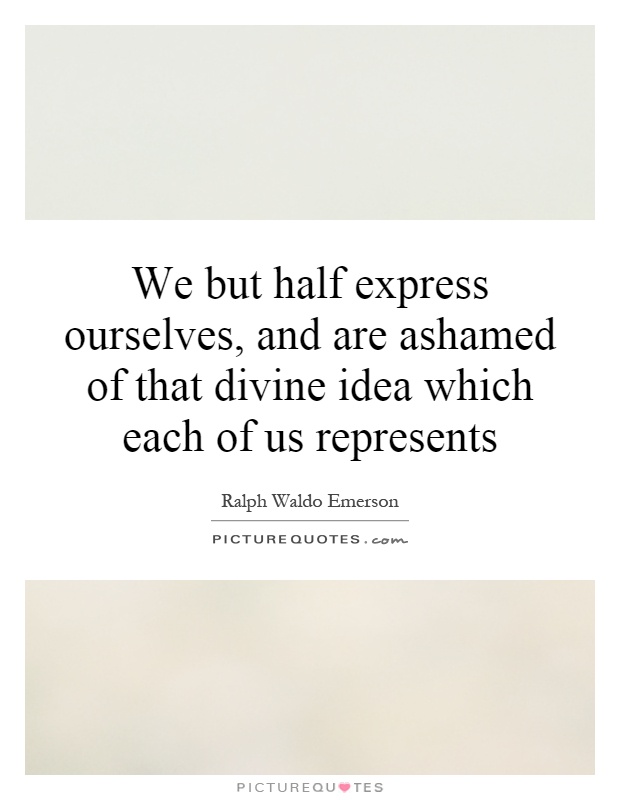We but half express ourselves, and are ashamed of that divine idea which each of us represents

We but half express ourselves, and are ashamed of that divine idea which each of us represents
Ralph Waldo Emerson, a prominent figure in the transcendentalist movement of the 19th century, believed in the inherent goodness and divinity of each individual. In his essay "Self-Reliance," Emerson explores the idea that we often fail to fully express our true selves and instead conform to societal expectations, leading to a sense of shame and dissatisfaction.Emerson argues that each person possesses a unique and divine spark within them, a "divine idea" that represents their true essence. However, he suggests that we often suppress this inner truth in order to fit in with the expectations of others. This conformity, according to Emerson, leads to a sense of shame and self-doubt, as we deny our own authenticity in favor of societal approval.
Emerson encourages individuals to embrace their true selves and express their inner divinity without fear or shame. He believes that by doing so, we can tap into our full potential and live a more fulfilling and meaningful life. Emerson's philosophy of self-reliance emphasizes the importance of trusting one's own instincts and beliefs, rather than seeking validation from others.
Emerson's words serve as a powerful reminder that each of us has a unique and valuable contribution to make to the world. By fully expressing ourselves and embracing our inner divinity, we can live authentically and make a positive impact on those around us. It is only by being true to ourselves that we can truly fulfill our potential and live a life of purpose and meaning.












 Friendship Quotes
Friendship Quotes Love Quotes
Love Quotes Life Quotes
Life Quotes Funny Quotes
Funny Quotes Motivational Quotes
Motivational Quotes Inspirational Quotes
Inspirational Quotes